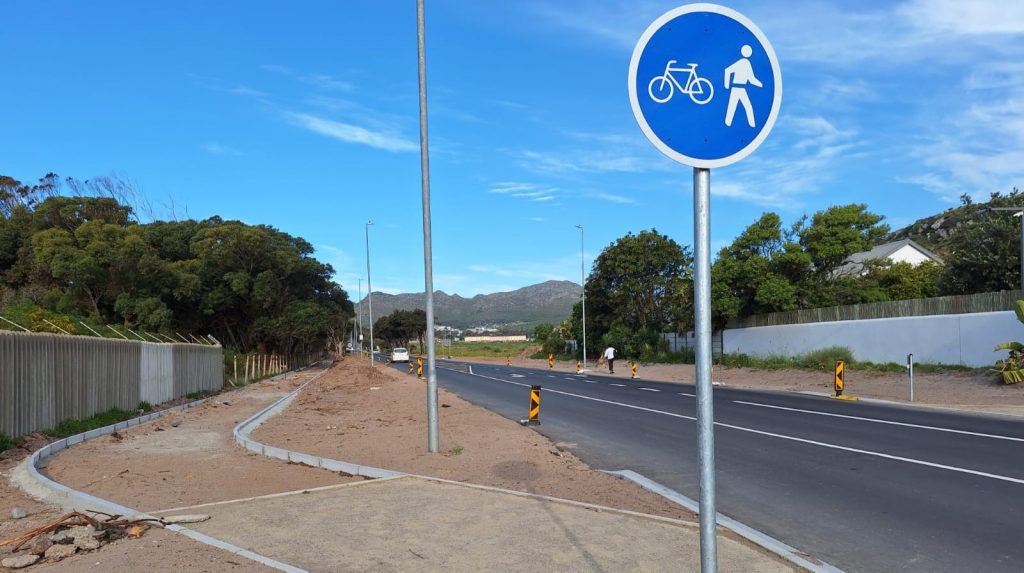
Shelwyn navigating an unsafe street. © SADD
Alliance member South Africans Against Drunk Driving (SADD), together with the Alliance, has been following and highlighting the story of Shelwyn, a wheelchair user forced to share a busy Cape Town street with fast-moving vehicles due to the absence of evidence-based interventions to keep him safe. Through sustained advocacy, a major win has been achieved — construction has begun on a new 3 meter wide separated footpath and bicycle lane along this street, providing safe passage for pedestrians, cyclists, and vulnerable road users like Shelwyn.
This footpath will allow Shelwyn and others to move safely and with dignity, an outcome that shows how advocacy can translate into real, life-saving change. The win represents a major step forward for vulnerable road users whose needs are often overlooked in street design. It proves that when NGOs push for safe infrastructure, governments can respond with solutions that protect all road users.

To achieve this win, SADD persisted in its advocacy with government officials, engaged community members to amplify its advocacy, and used tools such as the Mobility Snapshots to gather data and show evidence of dangerous streets and how to make them safe. “We presented data and advocated with ward councillors, the mayor, property developers, and transport departments, and worked closely with the community to build local ownership,” says Caro Smit, Director and Founder, SADD, South Africa.
Despite this win, challenges persist, especially with convincing local authorities to be proactive and to quickly implement evidence-based measures, often due to limited investments, budgets, and lack of awareness, says Caro Smit. To address this, she emphasizes the need for investments and specific budgets for road safety, partnerships amongst stakeholders, and for the government to listen to NGOs and work with them to ensure safety on the road. “This will help to implement, sustain, and scale the implementation of evidence-based interventions that keep people safe.”
As we near the midpoint of the Decade of Action for Road Safety 2021–2030, wins like this support achieving the ambitious targets set by the Global Plan for the Decade of Action for Road Safety 2021–2030 (Global Plan) to halve road deaths and injuries by 2030. The plan assigns a vital role to NGOs: to act as independent voices that influence social change, strengthen the evidence base, and hold governments accountable. SADD’s success in Cape Town is a powerful example of this role in practice, showing how NGO advocacy can contribute to meaningful change for people and drive progress toward achieving the Global Plan targets.
“Every local intervention contributes to global progress. When governments act on evidence-based recommendations from NGOs, they help move the world closer to halving road deaths and injuries by 2030.”